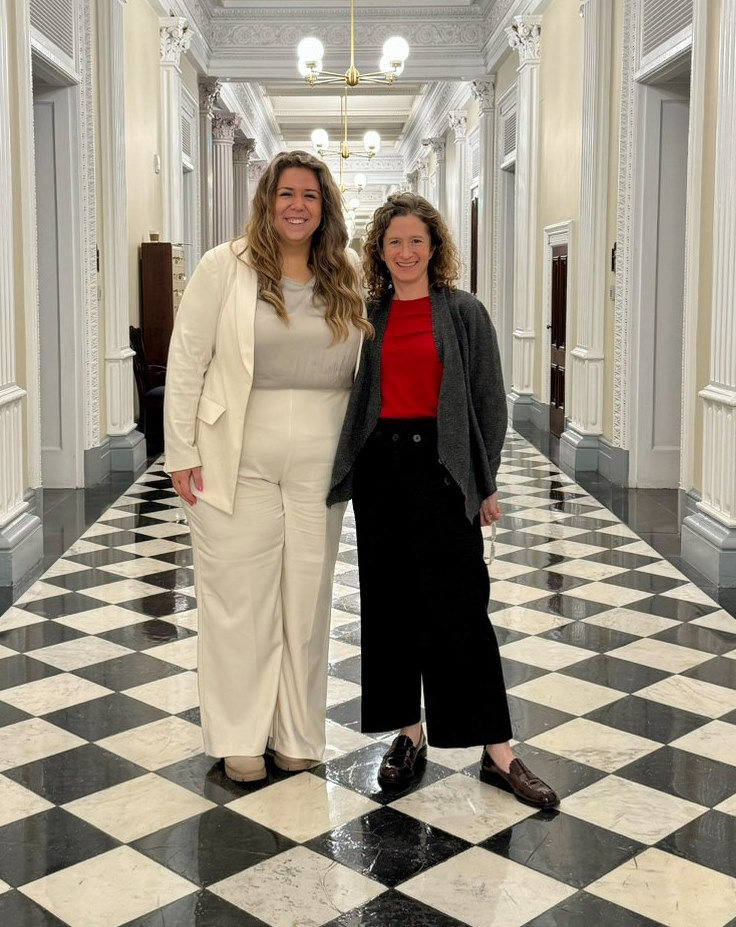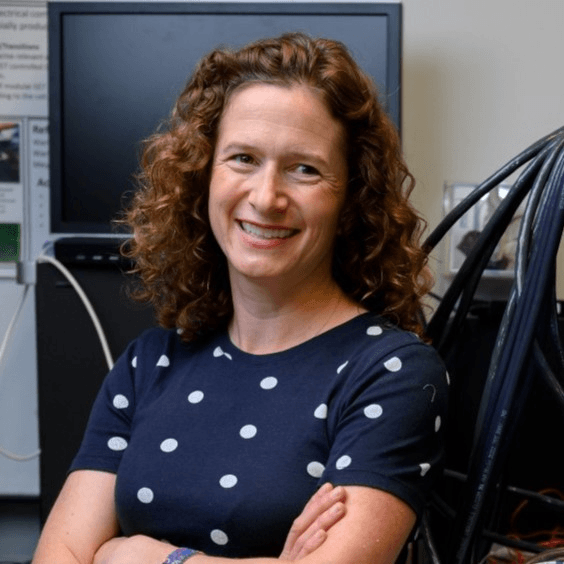January 22, 2025 | Erin Bluvas, bluvase@sc.edu
Where can your Arnold School degree take you? For Sarah (Strycharz) Glaven, it’s the White House. The Ph.D. in Environmental Health Sciences (’06) alumna currently serves as the Principal Assistant Director for Biotechnology and Biomanufacturing with the White House Office of Science and Technology Policy.
“Part of our mission is to coordinate across federal departments and agencies and with Congress to create bold visions, unified strategies, clear plans, wise policies, and effective, equitable programs for science and technology,” Glaven says. “I am responsible for implementing policy to grow the U.S. bioeconomy. This includes strategies to build new industries that are based on biological processes and could be cleaner, safer, and more sustainable to produce products we use in our everyday lives.”
She says she uses her USC degree to help inform how she thinks through the impact of new industries and technologies. Specifically, her doctoral program gave her the tools to think across many scientific disciplines.
Glaven’s path began in Western Massachusetts, where she enjoyed being outdoors and exploring nature in her own back yard. College tours introduced her to the field of environmental science and civilization’s impact on the planet – prompting her to study the subject at the University of Massachusetts.
“In one of the first classes I took we read a book called A Civil Action, which was about how contaminated water in Woburn, Massachusetts had made many very sick,” Glaven says. "I wanted to help make a difference in keeping our water and planet safe for all and became fascinated by the idea that you could use plants to clean up the environment.”
After learning that a USC professor was studying the topic at the Savannah River Site in Aiken, she enrolled in the Department of Environmental Health Sciences’ doctoral program. Glaven worked closely with many Arnold School faculty during this time, particularly Lee Newman (her dissertation chair) and Marjorie Aelion.
“They both influenced my career by being positive female role models in science and encouraging me to pursue hard problems,” she says. “Professor Alan Decho was also on my dissertation committee and through his own research inspired me to pursue the next research subject in my career following USC, biofilms.”

Her second postdoctoral fellowship led Glaven to a role with the Department of Defense (first with the Naval Research Laboratory and later Army DEVCOM) where she would conduct research on biofilms and climb the leadership ranks for the next 14 years.
Glaven’s research has focused on how bacteria in the ocean can generate electricity as they break down organic matter from decomposed plants and marine life on the ocean floor. These bacteria can be used to power up microbial fuel cells that can be used to produce electricity for sensors or other devices in the ocean.
“But that’s only half of the story,” she says. “Certain types of bacteria that live in the ocean can also ‘eat electricity’ in a process called microbial electrosynthesis. They can attach to metals or rocks, and energy from the surface can be transferred to the cell under certain conditions. Bacteria can use this energy to transform carbon dioxide into more cells, just like photosynthesis but without sunlight.”
Glaven’s research has resulted in four patents (with a fifth pending). Through her work, she discovered new types of bacteria and developed a technology to reduce ocean acidification by removing carbon dioxide. Some of her recent honors include induction as a Fellow of the International Society of Microbial Electrochemistry and Technology in 2022 and the Bio-Building Award from the Department of Defense in 2023.
“Don’t avoid opportunities to grow as a leader alongside growing scientifically,” Glaven says of lessons learned in the path she took. “Take time to mentor students and colleagues and invest in understanding what it means to be self-aware. Cultivate an environment that enables everyone around you to grow, not just yourself. This can be harder than you think.”
Outside of research and leadership, Glaven enjoys spending time with her two middle school-aged daughters. They all love long distance running together – using activity to maintain a healthy body and a sharp mind.
For others considering a path like hers, Glaven has some advice.
“Let curiosity be your guide and try to focus on what is in front of you rather than what job you might have some day,” she says. “If you pursue a career in something you are passionate about, you will be the most fulfilled and opportunities will come your way. It will be up to you to grab them.”
